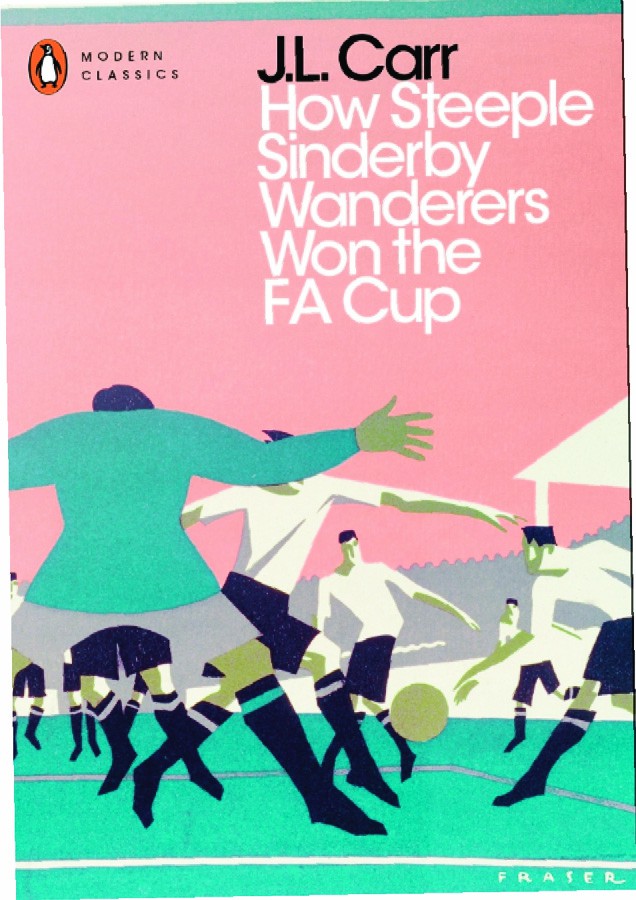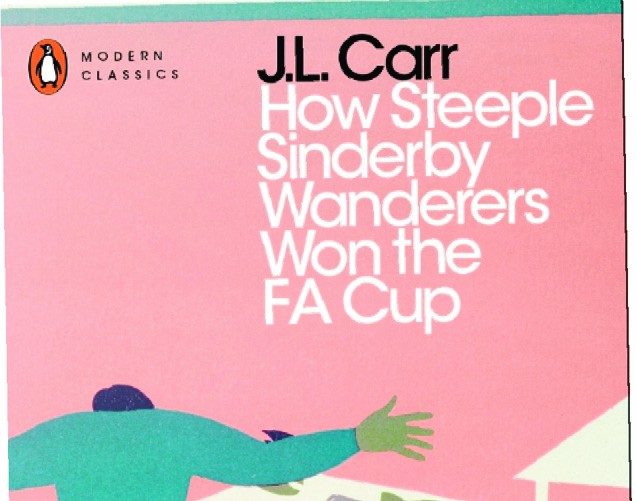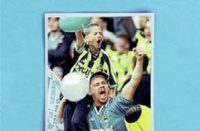IAN ASPINALL takes another look at a book first published in 1975, but still standing the test of time…
THE re-published ‘How Steeple Sinderby Wanderers Won the FA Cup’ by J.L.Carr is a classic football tale from a bygone age but it still has a resonance for football fans today.
It is a story about a small village team from the back of beyond who challenge for the greatest cup competition in world football.
A mysterious Hungarian coach introduces the team to the nine Kossuth Postulations. These game-changing mantras have a profound impact on the village team and it raises them into footballing greatness.
The credibility of the story is quickly established by interweaving factual information. For instance, when introducing the Kossuth Postulation No.1, which was the theory of ball control, it receives validation by mentioning how the great England player Wilf Mannion had demonstrated it.
The romantic vision that a village team could actually win the FA Cup is given credence by referring to the famous Hereford United team of 1972, who were the first Non-League club to knock out a First Division team, Newcastle United, in an FA Cup third round tie since Yeovil defeated Sunderland in 1949.
There is an eccentric collection of characters central to the team’s progress. The geeky narrator Gidner, the domineering chairman Fangfoss, the ex-professionals Arthur and Sid, and the forceful woman reporter Ginchy Trigger.
This is a bygone age, the 1970s, a time long before the Internet, before social media and 24-hour media coverage. This is old England -it is living in the past with comedic tendencies. Think Dad’s Army, Monty Python and Ripping Yarns.
The story gains plausibility through establishing a sense of history, mentioning the architecture of Pevsner’s ‘Buildings of England’, the geography of the fenland village and its relationship to the flat landscape of the area. This is not only a story of football greatness but of simpler times in a rural idyll.
For example: “We see its old age spire far away as we wend our way across this pastoral, watered landscape, its hedges ablaze with wild roses of every hue, the air laden with the song of birds. Its churchyard is crowned with the somber glory of a stately cedar of Lebanon and under its spreading boughs the good folk of the village have been summoned by bells for countless generations, till at least they rest beneath its evening shade…”
There is an official history in the offing, but it is, of course, never revealed.
This is not only a story steeped in Roy of the Rovers and Billy’s Boots comic book heroes of the 1970s, but of even earlier times and the Boys Own paper.
There is a strong sense of nostalgia for a more innocent past where stories of amazing adventures and sporting triumphs abound. The novel succeeds by making the extraordinary seem almost ordinary. The reader is almost convinced that getting to an FA Cup final is an everyday occurrence.
There is sense that what may be fiction could one day become fact. When Steeple Sinderby reach the first round proper, the information is relayed in the FA’s press release.
“So when the draw was announced, imagine hard-pressed Sports Editors finding this foreign name, Sinderby, on the FA’s press release. Yeovil, they knew, Wigan Athletic, Dulwich Hamlet, Bishop Auckland and Norton Woodseats they knew. Every odd year or so, all these glimmered faintly before being snuffed out. But Steeple Sinderby…?”
To the modern reader of this passage, the irony is reinforced by the fact that the former Non-League side Wigan Athletic shocked the football world by winning the FA Cup in 2013.

There are plenty of quotes from newspaper reports and committee minutes to reinforce the credibility of the narrative.
There are plenty of digs at many of the bugbears of the 1970s, eg. politicians, local and national government, big business corporations and the nationalised industries.
There are some amusing quotes from the pompous chairman Fangfoss.
When talking about managerial efficiency, he comments: “It is because I am not an expert. Experts invent themselves. Whereas I was born with my mind made up.”
Strangely, the team’s progress in the FA Cup skips a few rounds before they face Manchester. The team’s progress is always categorised as of Homeric proportions.
There is even an outbreak of hooliganism after the Manchester cup-tie. This was one of the preoccupations of 1970s football and its presence is perhaps only to be expected.
But it is told in a comic style more reminiscent of Dad’s Army than the hardcore aggression of the West Ham or Millwall Inter City firms of the time.
When Steeple Sinderby reach the semi-final, their opponents Aston Villa are characterized as once being a Sunday School team managed by a Sunday School teacher.
The matter of fact approach is demonstrated when the victory over Aston Villa is not even reported upon as the other village issues are more pressing.
This may be a football fairytale but we want to find out how the underdog succeeded. Steeple Sinderby’s success is an unparalleled moment in history and we are encouraged to believe that the impossible can become possible.
Against all the odds, something incredible can happen. Just like Wigan Athletic winning the FA Cup in 2013 and Leicester City winning the Premier League in 2016.
● How Steeple Sinderby Wanderers Won the FA Cup by J.L.Carr is published by Penguin Modern Classics.


















